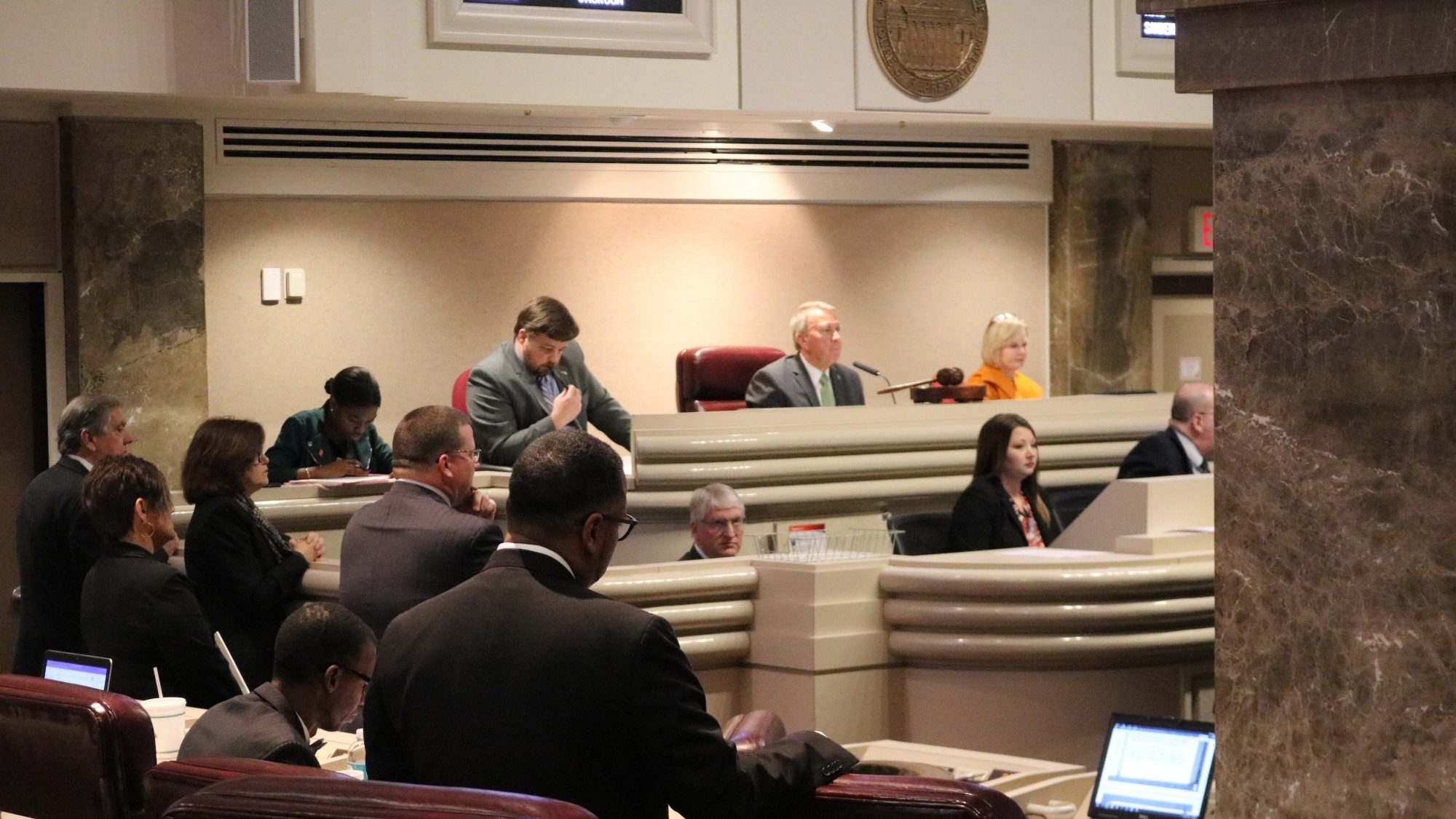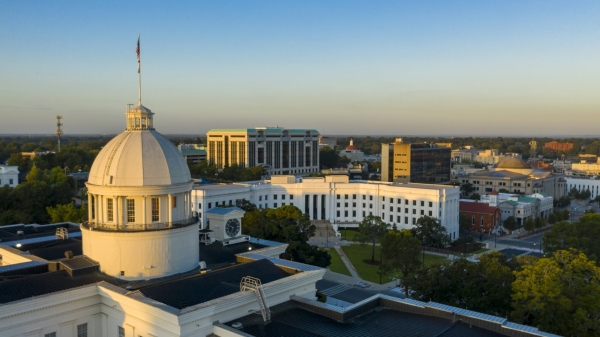The 2019 regular legislative session began on Tuesday, but following the adjournment of her state of the state address Alabama Gov. Kay Ivey called a special session to address Alabama’s infrastructure issues.
The regular session has been recessed until March 19. Only one of the regular sessions’ 30 legislative days has been used.
The special Session is focused on legislation to levy an additional excise tax on gasoline and diesel fuel; legislation concerning the Legislature’s Permanent Joint Transportation Committee to provide for effective legislative oversight of the Alabama Department of Transportation; and legislation to provide the Alabama Highway Finance Corporation with authority to borrow money and issue bonds for the purpose of improving the Alabama State Docks and the Mobile Bay ship channel.
“Due to the dire need to act now, I am the Alabama Legislature into a special session, focused solely on passing this critical infrastructure legislation,” Ivey said in a statement. “Beginning tomorrow, as we enter this special session, we must shift our focus and tackle this issue together! It’s time to make our crumbling infrastructure system a problem of the past.”
Ivey made a pitch for the fuel tax increase during her state of the state address:
“Each year in Alabama, 69 billion miles are driven on our roadways,” Gov. Ivey said. “We have urban roads in poor condition. Our drivers are experiencing major congestion on our freeways. County governments currently operate on a 56-year resurfacing schedule; when, in fact, we should be operating on a 15-year rate. In Alabama, half of our more than 16,000 bridges are older than their 50-year life span. Bridges should be replaced every 50 years. Yet, county governments are on schedule to replace their bridges every 186 years! Folks, that’s almost as long as Alabama has been a state. From 2015 to 2017, Alabama saw nearly 3,000 traffic fatalities. One-third of those were due to deficiencies in our roadways.”
Gov. Ivey said that state Representative Bill Poole, R-Tuscaloosa, and Senator Clyde Chambliss, R-Prattville, will carry the legislation.
“Leading the charge in the Legislature on this issue is Representative Bill Poole,” Governor Ivey said. “He along with Senator Clyde Chambliss, will guide this legislation over the coming weeks. I thank both of them for their leadership.”
The plan which was released only days before the regular session even though Gov. Ivey called for this tax increase during her inauguration speech weeks ago and even though supporters admit they have been working on this for 18 months.
”Much work has gone into this issue by many people over the last 18 months including over 30 public meetings regarding every aspect of infrastructure,” said Sen. Chambliss. “I attended many of those meetings and so did a lot of others. I have reviewed the only other alternative plan out there and it is based on one-time monies. Relying on on-time monies is what got us into the mess we are in. I cannot support such temporary measures to a need that will be with us until we don’t use roadways any more.”
One of the most controversial parts of the plan, other than there is any tax increase at all, is that Alabama motorists are subsidizing the international transoceanic shipping industry; but repairing, updating the state docks, and dredging the shipping channel for the Port of Mobile. The Port improvements will cost the transportation budget $10 million a year.
“Each year, $436 billion dollars in goods are shipped to and from businesses using our state’s roadways,” Ivey said. “The Port of Mobile, Alabama’s only deep-water port, moves approximately 64 million tons of cargo each year. Deepening and widening the Port will increase Alabama’s economic capability. This will enhance our status as a primary industrial and agricultural hub in the Southeast.”
Opponents claim that an additional ten cents per gallon of gas is overtaxing the people of Alabama. Sen. Chambliss, however, points out that the Alabama tax burden per capita as a percentage of household income peaked in 2001 at just 6.4 percent. That has since plummeted to just 4.7 percent in 2017, the lowest that it has been in decades.
Supporters claim that the increase will cost the average Alabamian just $55 more a year. Obviously, families where both parents commute to work and where children have to be driven to a number of extracurricular activities like ball games or people who work out of their vehicle and drive considerably more than 200 miles per week will pay more than that in taxes. There is also a special penalty imposed on people who drive electric or hybrid vehicles in the plan.
Ivey argued that better roads will actually save motorists money.
“Driving on rough roads costs the average Alabamian $507 dollars annually in additional vehicle maintenance – a total of $2 billion dollars statewide, each year!” Ivey said in her state of the state.
The tax increase, which will be phased in over three years, is projected to raise $310 million a year. The tax increase is indexed with the cost of construction so the ten cent per gallon tax may rise over time.
The bill has the support of Speaker of the House Mac McCutcheon, R-Monrovia, and Senate President Pro Tempore Del Marsh, R-Anniston, as well as the powerful Business Council of Alabama (BCA) and even some Democrats. If it does not pass in the special session, the legislature could bring is back in the regular session or Gov. Ivey could call another special session.
The Alabama Republican Executive Committee has passed a resolution urging the legislature to reject the tax increase.
The special session begins today at 9:30 a.m.



















































